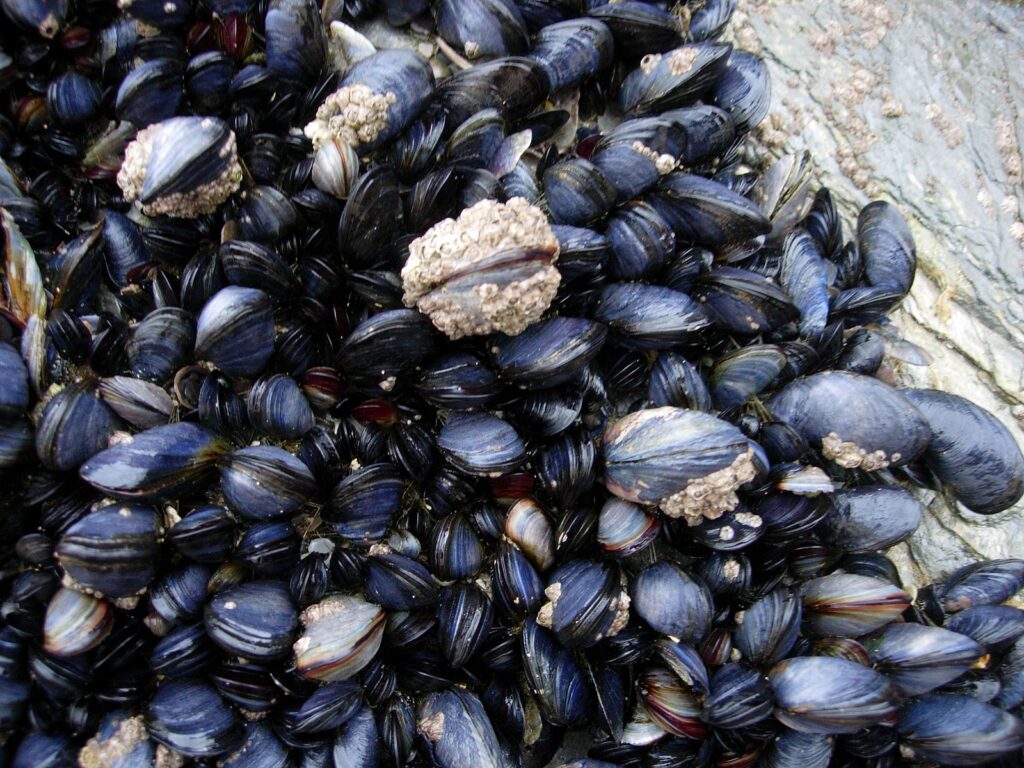Mussel Poop May Help Clear Oceans of Microplastics
Posted
Last Updated
By science.org.
One of the most widespread pollutants in the ocean is also one of the hardest to see. Trillions of tiny particles of plastic—known as microplastics—can clog the intestines of fish, destroy the tissues of marine creatures, and cause entire populations to decline. Their small size also makes them almost impossible to clean up.
Now, scientists have discovered a marine organism that’s not just invulnerable to microplastics, it may have a way to eliminate them—literally. The blue mussel (Mytilus edulis)—a voracious, filter-feeding mollusk with a blue-black shell—ingests microplastics and other pollutants alongside its typical fare, sequestering the contaminants in feces that are much easier to remove from the water than are the plastics themselves.
The mussels are essentially “putting the rubbish out for us to collect,” says Penelope Lindeque, an ecologist at the Plymouth Marine Laboratory who led the research.
To conduct the work, Lindeque and her colleagues collected blue mussels from a farm in Cornwall, England. Scientists already knew the creatures could filter microplastics in still water in a lab, so they tested them in more dynamic conditions. After placing the bivalves in a steel tank, they pumped in microplastic-laden water. True to their reputation, the mussels gobbled up the plastics, eventually consuming about two-thirds of the microplastics in the tanks and sequestering them in their feces.
The mussels were similarly heroic in the real world. Scientists placed them in baskets and brought them to a nearby marina. They chose an inlet subject to runoff, pollution from boats and ships, and spillover from storm overflow drains. After lowering baskets with about 300 blue mussels into tanks in the water, they used a trap below each basket to capture feces. A second tank with an outlet allowed water to flow back into the surrounding environment.

